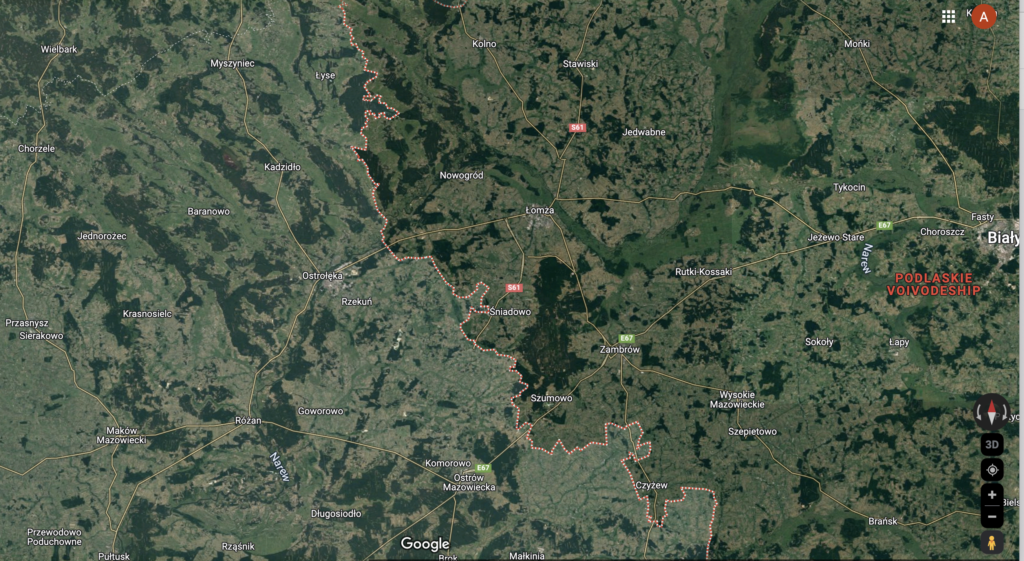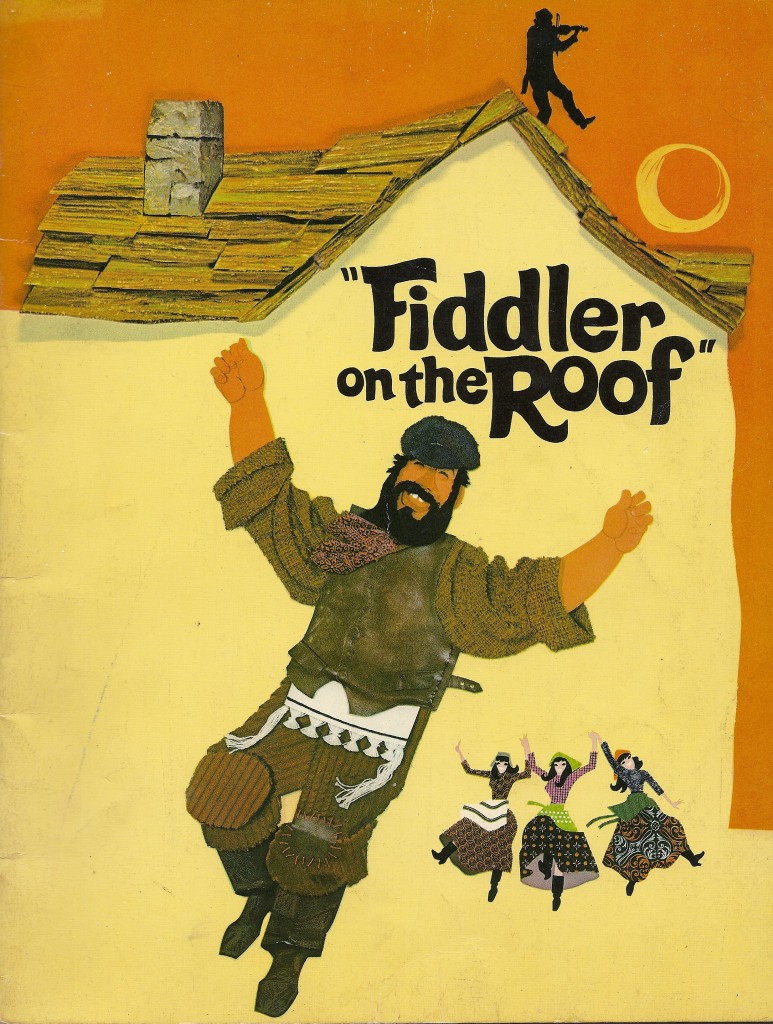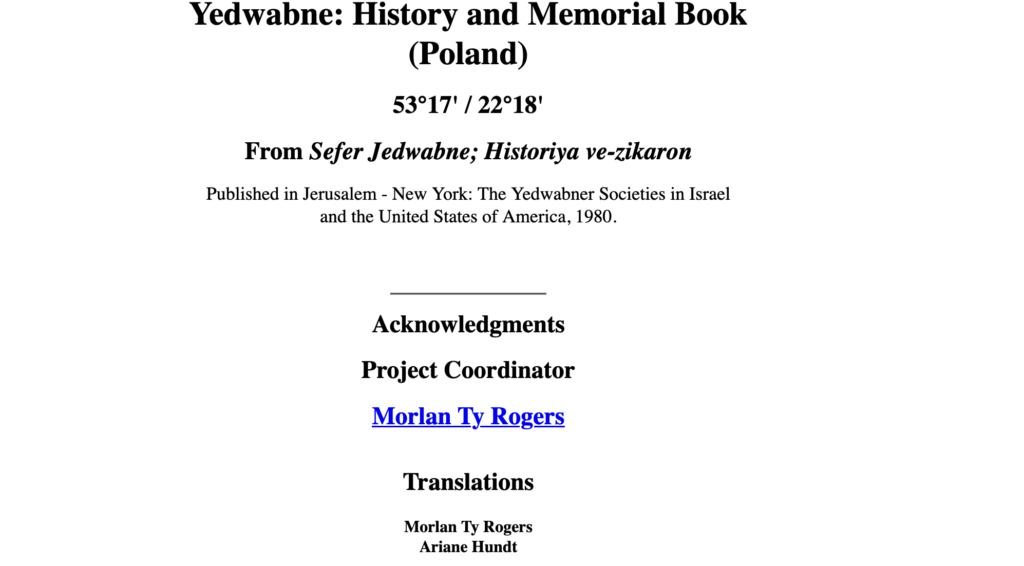
Mendel was born in a little town, the shtetl Jedwabne, which lies in the Podlaskie Voivodship not far from Łomza and Białystok
 This is the cover of the program for the feature film Fiddler on the Roof that my father kept amongst tons of other paper items—personal writings, magazines, financial papers, legal documents, photographs—mementos of his life. The Fiddler on the Roof booklet was more than just a movie program; it signaled something significant that I would need to explore.
This is the cover of the program for the feature film Fiddler on the Roof that my father kept amongst tons of other paper items—personal writings, magazines, financial papers, legal documents, photographs—mementos of his life. The Fiddler on the Roof booklet was more than just a movie program; it signaled something significant that I would need to explore.

Stories in the Jedwabne’s history and memorial book (Sefer Jedwabne) affirm my father’s memories of displacement and dispossession.” The book is available online: https://www.jewishgen.org/yizkor/jedwabne/Yedwabne.html